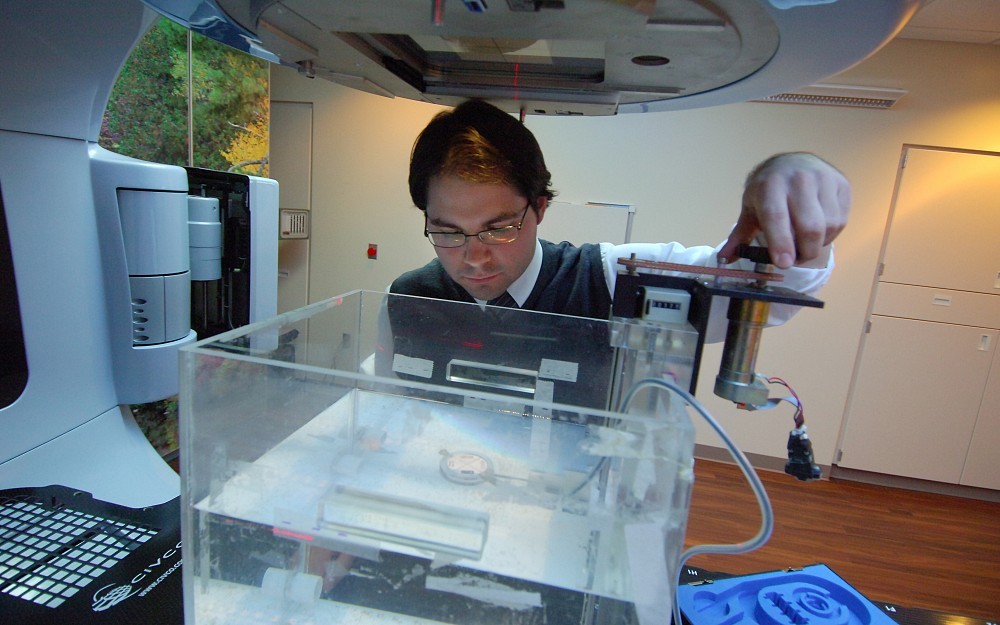
Medical Physics MS DMP Program 1 of 2 in U.S. Providing Clinical Experience
As of 2014, the American Board of Radiology is requiring two years of supervised clinical experience prior to entry into a medical physicists board examination.
To meet this requisite, Howard Elson, PhD, professor and director of graduate education for the UC College of Medicines Department of Radiation Oncology, has revamped UCs medical physics masters program to provide students with this experience, eliminating the need for graduates to find a separate medical physics residency program.
The revised program will begin Aug. 25 with three new students, who will then go on to work at the UC Barrett Cancer Center to complete their third and fourth years of training.
The program is only the second of its kind in the countrythe other is at Vanderbilt University.
Elson says medical physicists collaborate with radiation oncologists to design treatment plans for cancer patients, monitor equipment and procedures to ensure that patients receive the prescribed dose of radiation to the correct location and develop improved imaging and therapeutic techniques.
"These specialists bridge the gap between physics and medicine and as the medical community embraces more radiation-based techniques in health care, the need for highly skilled medical physicists is growing so training programs must begin growing to fill the need, he says. "This program provides four years of education with guaranteed clinic time, as opposed to other programs that require separate residencies, which are sparse, and with the high demand, many students are unable to secure spots, delaying their transition into the workforce.
Elson says accreditation for the program is being sought, with hopes of gaining it soon.
More information about the medical physics program can be found here.
Related Stories
Machine learning brings new insights to cell’s role in...
April 30, 2025
Researchers led by the University of Cincinnati’s Anna Kruyer and the University of Houston’s Demetrio Labate have published research in the journal Science Advances applying object recognition technology to track changes in brain cell structure and provide new insights into how the brain responds to heroin use, withdrawal and relapse.
Most teens prescribed SSRIs did not have recommended follow-up...
April 30, 2025
The University of Cincinnati and Cincinnati Children's Hospital Medical Center's Martine Lamy commented to Medscape on new research that found fewer than half of the adolescents prescribed a selective serotonin reuptake inhibitor (SSRI) at two large Chicago pediatric primary care clinics had a follow-up visit within the recommended 6 weeks.
UC recognizes students for innovation achievement and leadership
April 30, 2025
Read about the University of Cincinnati’s undergraduate innovation awards for 2025.
